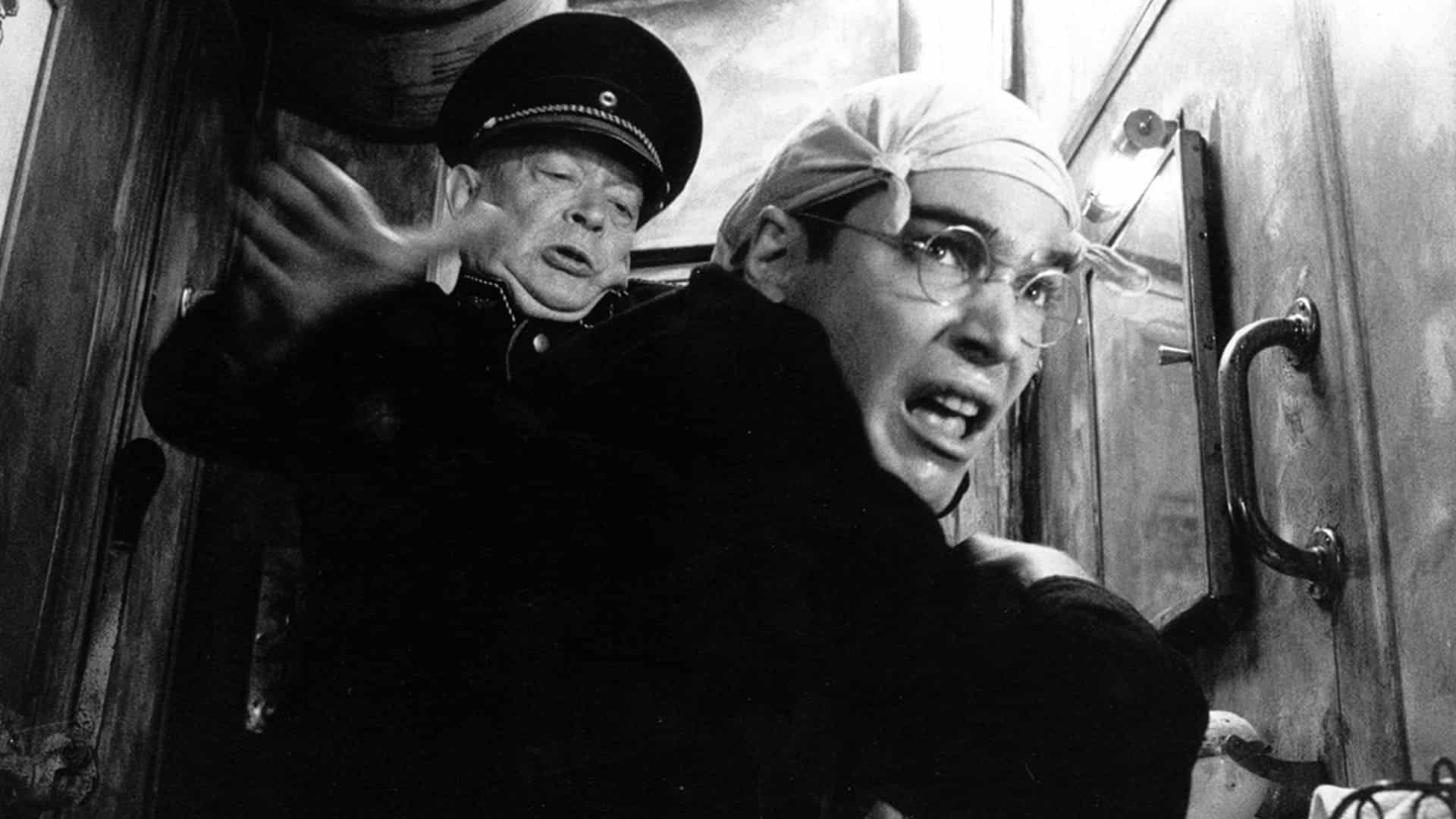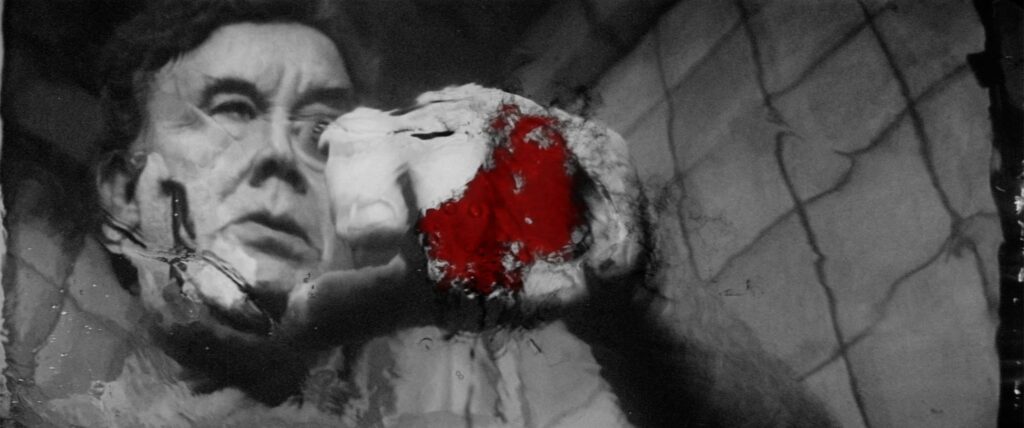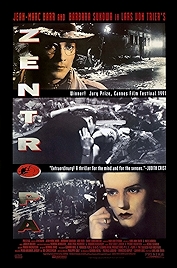Europe is finished! Lars Von Trier’s finale to his Europa trilogy – Europa – makes summaries and predictions about life on a continent dragging a long, dark history behind it. All three films – The Element of Crime, Epidemic and now Europa – work in the same way, as grim anti-pantomimes of studied awfulness, presented in arthouse genuflection before Tarkovsky, Kafka, Fassbinder and Brecht.
Into a shattered post-War Germany in ruins Von Trier inserts his hero, a new arrival from America, full of idealism and signing up to work on the railways as a sleeping car guard. It’s not long before Leopold Kessler (Jean-Marc Barr) has been compromised, restrained, tied down and discredited after involving himself with old money in the old continent, in the shape of femme fatale Katharina Hartmann (Barbara Sukowa), daughter of the owner of the railway Leopold is working on.
In a plot that revolves around the arcane working practices of the train guard, the family that owns the train (also once used, as they point out, to ship Jews to the camps), an American Colonel on denazification duty, a renegade group of Nazi diehard saboteurs called the Werewolves, and a plot to blow up a bridge with a bomb on board the train, Von Trier attempts something like a Shanghai Express examination of motive and character during a time of conflict.
Notably, both Von Trier and Von Sternberg (who directed Shanghai Express all those decades before) were phony “Vons”, the pair of them having having indulged in a bit of self-ennoblement with the nobiliary particle (as Wikipedia tells me it’s called). Barbara Sukowa’s Katharina Hartmann is a read-across from Marlene Dietrich’s Shanghai Lily, a woman as dangerous as she is mysterious.
Von Trier’s two impulses fight for control of the film. On the one hand he wants to make something to confound respectable order – hence the Brechtian distancing effects reminding us at all times that we’re watching something artificial (the switches from black and white to colour, the regular use of back projection and models) – but he also wants to make something thrilling and watchable, a film noir of the old school.
Hartmann was the name of Von Trier’s father, so there’s obviously some score settling, or a family joke, in play here as well, and the fact that the railway company is called Zentropa, the name of Von Trier’s future production company, also suggests a personal aspect to this film. Von Trier himself turns up at one point, playing someone known only as the Jew. Von Trier grew up believing he had Jewish ancestry and only later discovered that the man he thought was his biological father wasn’t, a realisation which eventually got him in hot water at Cannes when the media confected an outrage around remarks Von Trier made about discovering that he was in fact more “Nazi” than he’d thought – a joke that misfired.
Udo Kier, in his second film for Von Trier, plays Katharina’s brother, Eddie Constantine, nearly 80 and looking old and sick (he’d be dead within two years), plays the colonel, a man whose probity is always in question, and Ernst-Hugo Järegård plays Leopold’s uncle, a seasoned train attendant who got him the gig in the first place.
With the exception of Leopold everyone plods as if carrying a burden – guilt? – until eventually it gets the better of Leopold too and he succumbs to a fate that is positively Kafkaesque. Over the top of what often looks like cosplay, Von Trier inserts a voiceover by Max von Sydow, as a hypnotist enjoining us to enter the fantasy and go with it. “You will now listen to my voice. My voice will help you and guide you still deeper into Europa. Every time you hear my voice, with every word and every number, you will enter into a still deeper layer – open, relaxed and receptive.” He’s the only totally genune thing in the whole film.
As intended, it’s simultaneously involving and resistible – Von Trier’s three cinematographers have turned out a fine looking noir movie, and his composer, Joachim Holbek, switches between lush, mournful Brahms/Bruckner late-romantic elegy and film noir stabs. This Tarkovskian post-apocalyptic Germany is well conjured from a meagre budget that is well used.
For all his film’s pluses, Von Trier the film-maker finds himself losing out to Von Trier the disruptor. See Melancholia for when he got it totally, gloriously (and yet still grimly) right.
.
Europa – Get the whole trilogy at Amazon
I am an Amazon affiliate
© Steve Morrissey 2022


